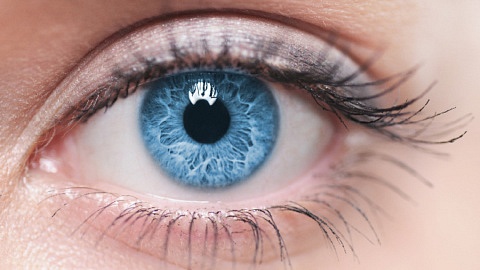The human brain is an extraordinary organ. Part of an elaborate neurological network, the brain helps us interact with the world around us. It is important...
3 Easy Ways to Help Prevent the Progression of Cataracts
Did you know that cataracts are the leading cause of blindness worldwide? They leave more people blind than glaucoma, macular degeneration and diabetes combined (preventblindess.org). For Canadians, this amounts to 2.5 million people, a staggering number that continues to grow (cnib.ca).
Cataract is the clouding of natural lens of the eye and can cause blurred vision and degradation of colour perception. A cataract is akin to looking through a dirty windshield of a car. It can form in one or both the eyes.
Some people think that cataracts occur due to natural aging. That’s only partially true. Here are three easy steps that you can take to help prevent developing cataracts:
UV Protection
Direct eye contact with sunlight and exposure to ultraviolet (UV) rays is one of the main reasons causing the development of cataracts. In fact, there might be more UV exposure on an overcast versus a sunny day. Thus, it is absolutely imperative to always wear UV protective eyewear when outdoors. Don’t forget to ask your Optometrist on how to get 100 per cent UV protection in your clear eyeglasses as well as through your sunglasses.
Diet
You are what you eat! Diets rich in carbohydrates have been shown as a cause for cataracts to form at a younger age (Investigative Ophthalmology & Visual Science). People with diabetes should be especially aware as they are four times more likely to develop cataracts as compared to non-diabetics. (1) Eating foods that are rich in Vitamins C and E, folic acid, and omega 3 may help alleviate the risk of developing cataracts. Don’t forget to include the leafy greens, and bright coloured vegetables and fruits, such as kale, spinach, orange pepper, and grapes to name but a few, in your diet – as they also help prevent cataract formation and progression.
Annual Visits to Optometrist
Your Optometrist is best suited to keep a close eye on any physiological changes that may occur. Fortunately, there are many treatment options available to you, but only your Optometrist can recommend a specific treatment plan based on the type of cataract you have. An annual comprehensive eye exam is a great way to ensure that your eyes are in the best health for many years to come.
Optometrists are the primary go-to providers of all eye health and vision care related needs. Regular eye exams with your Optometrist can not only help in the early detection and treatment of cataracts, but also help identify many other vision threatening diseases.
Remember, you don’t need a referral to see you Optometrist – most Optometrists can see you the same day if your eye condition needs urgent care. Your Optometrist is just a phone call (or email) away! Don’t suffer unnecessarily, take care of your peepers together with your Optometrist.
Related Posts
Back to School
Bell LifestyleSeptember 14
Heading into a new school year can bring on a range of different emotions and this new school year is no exception. After a whirlwind of a year with...
The human eye and vision centres in the brain are quite complex. Detection of colour, depth, and central and peripheral visual fields are all important...
Back to School
Bell LifestyleSeptember 14
Heading into a new school year can bring on a range of different emotions and this new school year is no exception. After a whirlwind of a year with...
The human eye and vision centres in the brain are quite complex. Detection of colour, depth, and central and peripheral visual fields are all important...
Categories
- Allergy Relief
- Bell Lifestyle News
- Brain and Vision Health
- Depression
- Digestive Health
- Eating Healthy
- Energy Boosts
- Fitness
- Foods for Energy
- Heart and Lung Health
- Herbs
- Immune System Support
- Lifestyle
- Men's Health
- Mental
- Motivation
- Natural Remedies
- Nutrition
- Pain Relief
- Physical
- Recipes
- Relationships
- Sexual Health
- Skin and Hair Health
- Sleep Health
- Social
- Stress Relief
- Uncategorised
- Videos
- Weight Management
- Women's Health
- Your Wellness Now
Follow us on Twitter
#90 Bladder One for Women™ is a convenient one-a-day capsule for urinary tract health, featuring herbal extracts in… twitter.com/i/web/status/1…
May 2023Urinary tract infections - UTI: To treat or prevent? That is the question. Find out more about causes and treatme… twitter.com/i/web/status/1…
May 2023"How you feel is very important to how you look. Healthy equals beautiful." - Victoria Principal #womenshealth https://t.co/OPShoEbOXb
May 2023
© Copyright 2024. All rights reserved.




